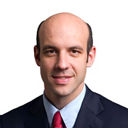Capital at risk. Past performance is not a reliable indicator of current or future results and should not be the sole factor of consideration when selecting a product or strategy.
The listed funds are not an exhaustive list of funds available. Visit www.funds.troweprice.com to see the full range of funds offered by T. Rowe Price, including those that consider environmental and social characteristics as part of their investment process. For up to date information regarding any T. Rowe Price fund's investment strategy, please see the relevant fund KID and prospectus.
Risks
The following risks are materially relevant to the fund. Please click here to view the definitions of the risks listed below.
- Currency
- Equities
- ESG
- Geographic concentration
- Investment fund
- Management
- Market
- Operational
- Small/mid cap
- Style
Typical Investor
Investors who plan to invest for the medium to long term, and who:
• are interested in investment growth
• understand and can accept the risks of the fund, including the risks of investing in equities
Past performance is not a reliable indicator of future performance.
The Funds are sub-funds of the T. Rowe Price Funds SICAV, a Luxembourg investment company with variable capital which is registered with Commission de Surveillance du Secteur Financier and which qualifies as an undertaking for collective investment in transferable securities (“UCITS”). Full details of the objectives, investment policies and risks are located in the prospectus which is available with the key investor information documents and/or key information document (KID) in English and in an official language of the jurisdictions in which the Funds are registered for public sale, together with the articles of incorporation and the annual and semi-annual reports (together “Fund Documents”). Any decision to invest should be made on the basis of the Fund Documents which are available free of charge from the local representative, local information/paying agent or from authorised distributors. They can also be found along with a summary of investor rights in English at www.troweprice.com. The Management Company reserves the right to terminate marketing arrangements.
Hedged share classes (denoted by 'h') utilise investment techniques to mitigate currency risk between the underlying investment currency(ies) of the fund and the currency of the hedged share class. The costs of doing so will be borne by the share class and there is no guarantee that such hedging will be effective.
Before deciding to invest in the fund, you should read the offering document/prospectus (including its investment objectives, policies and any risk warnings) which are available and may be obtained from any appointed distributors.
The specific securities identified and described in this website do not represent all of the securities purchased, sold, or recommended for the sub-fund and no assumptions should be made that the securities identified and discussed were or will be profitable.
A full list of the currently issued Share Classes including Distributing, Hedged, and Accumulating Categories may be obtained, free of charge and upon request, from the registered office of the Company.
Benchmark: Investors may use the benchmark to compare the fund’s performance. The benchmark has been selected because it is similar to the investment universe used by the investment manager and therefore acts as an appropriate comparator. The investment manager is not constrained by any country, sector and/or individual security weightings relative to the benchmark and has complete freedom to invest in securities that do not form part of the benchmark.
Disclosure on Vendor Indices can be found here.




